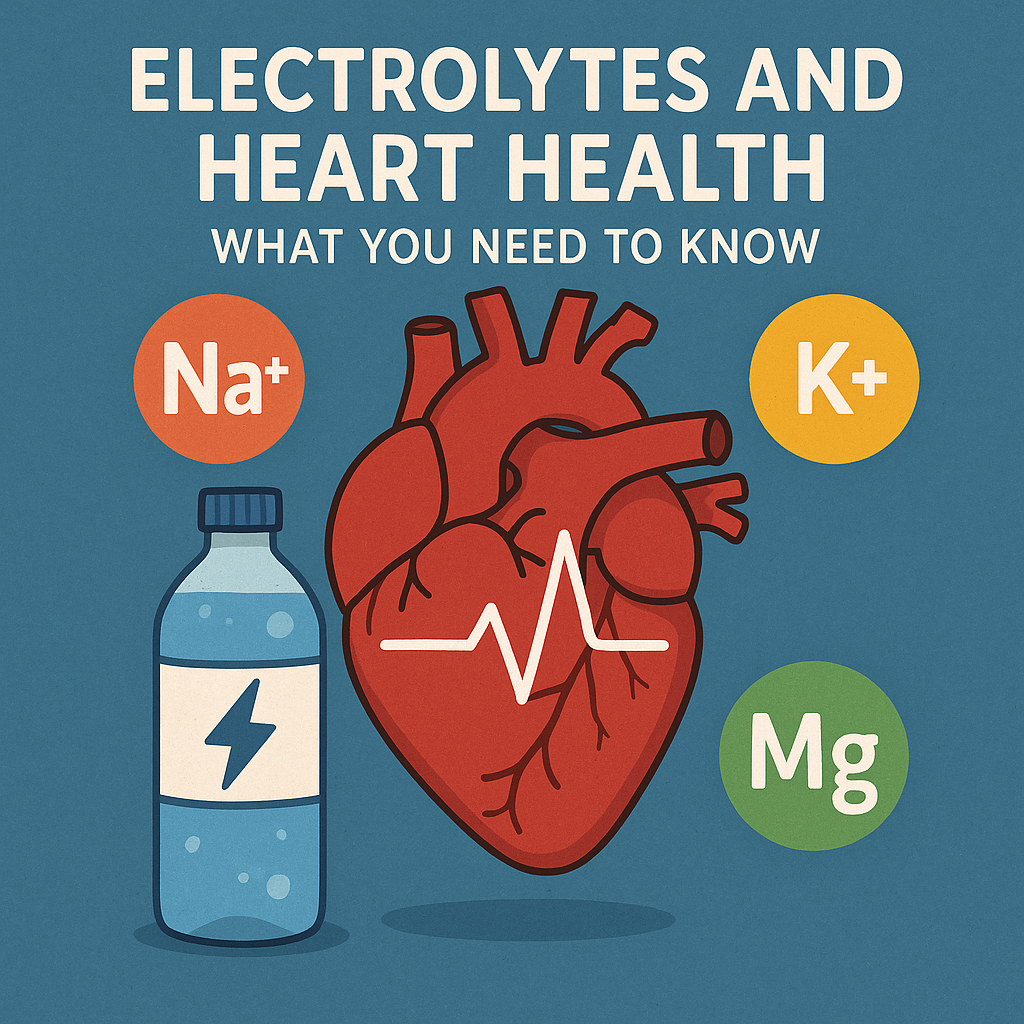
Electrolytes and Heart Health: What You Need to Know
Share
Maintaining a balanced level of electrolytes especially sodium and potassium is essential for your heart and blood pressure. An imbalance can raise your risk of hypertension and even arrhythmias. For a full overview, see our Electrolyte Buying Guide for the UAE.
How do sodium and potassium affect the heart?
Sodium and potassium help regulate fluid balance and blood volume. Too much sodium or too little potassium can raise blood pressure. Increasing dietary potassium helps counteract sodium’s effects by relaxing blood vessel walls and promoting sodium excretion thus lowering blood pressure and reducing cardiovascular risk. This is especially important for seniors, as covered in our blog on hydration for the elderly in the UAE.
What are the signs of an electrolyte imbalance in the heart?
- Irregular heartbeat or arrhythmias a low potassium or magnesium level can disrupt electrical signals.
- Dizziness, muscle cramps, headaches, fatigue, or confusion common symptoms of electrolyte imbalance.
- High blood pressure or fluid retention often linked to excess sodium and low potassium intake.
Many of these overlap with classic signs of dehydration in the UAE, making it crucial to pay attention to both fluid and mineral balance.
Strategies to keep electrolytes balanced
- Eat potassium-rich foods avocados, bananas, spinach, and legumes help regulate blood pressure and heart function.
- Reduce excess sodium from processed foods and use potassium-based salt substitutes for safer seasoning.
- Ensure magnesium intake supports electrical rhythm spinach, nuts, and whole grains offer good magnesium sources.
- Complement diet with a sugar-free electrolyte powder like Electrag Gold, particularly in high heat or during physical strain.
